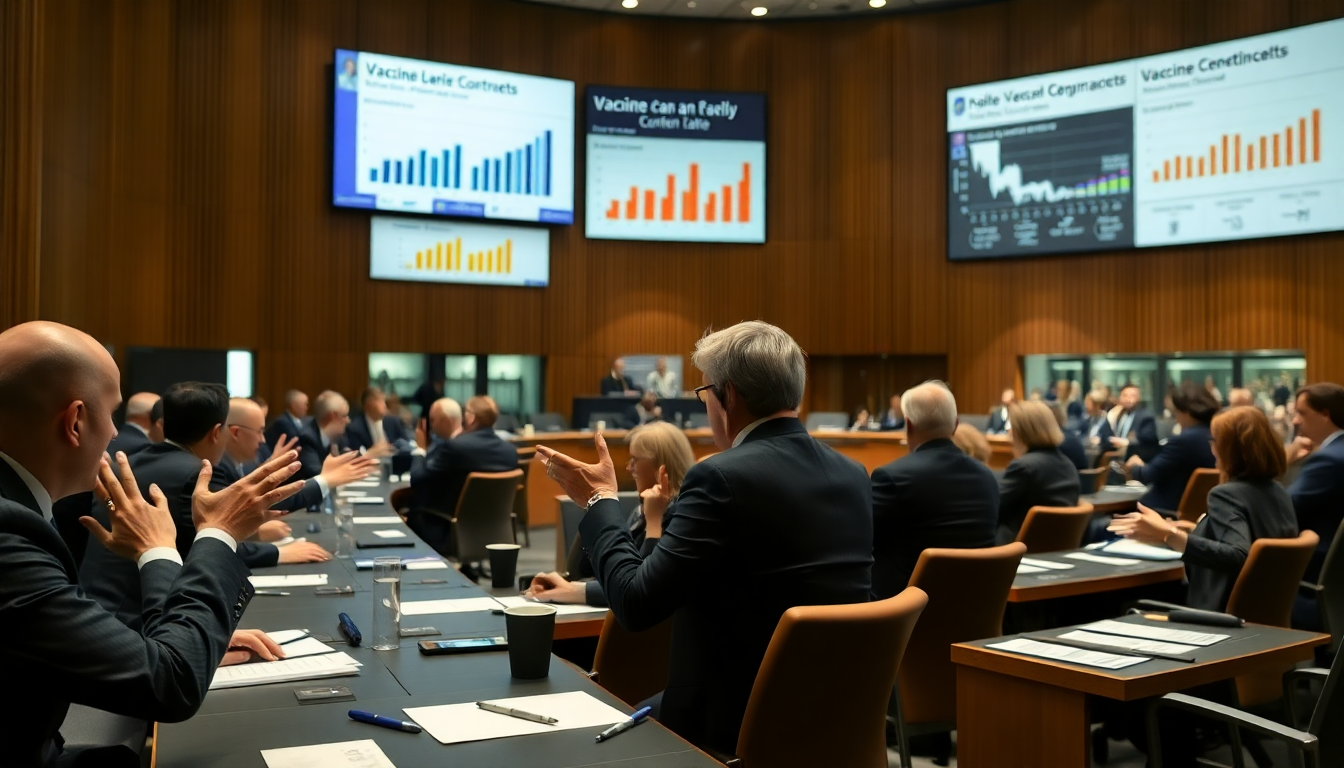Table of Contents
In a significant moment for European politics, Ursula von der Leyen, the President of the European Commission, is facing intense scrutiny over her communication with pharmaceutical companies during the Covid-19 pandemic. This has led to a no-confidence debate in the European Parliament, largely driven by accusations related to the so-called “Pfizergate” scandal.
But what does this mean for the EU? The unfolding events not only highlight the political tensions within the Union but also emphasize the urgent need for transparency in government dealings.
The Context of the Controversy
The controversy kicked off when it was revealed that von der Leyen exchanged text messages with Albert Bourla, the CEO of Pfizer, while negotiating a multibillion-euro vaccine contract.
In May, an EU court ruled that the Commission’s refusal to disclose these messages was unjustified, sparking demands for greater transparency. Critics argue that the murkiness surrounding these negotiations raises serious questions about accountability and the integrity of the Commission’s dealings with pharmaceutical giants.
Doesn’t it make you wonder what else might be hidden from public view?
During a recent session in Strasbourg, von der Leyen faced European Members of Parliament (MEPs) who expressed their concerns about the implications of these undisclosed communications.
She defended her actions by asserting, “It is no secret that I was in contact with top representatives of the companies producing the vaccines that would get us out of the crisis.” Her remarks were designed to frame her discussions as part of a larger strategy to manage the pandemic effectively, but they did little to quell the dissatisfaction among lawmakers.
How can leaders expect trust when transparency seems lacking?
Critics, especially from right-wing factions, have jumped at the opportunity to challenge von der Leyen’s credibility and the Commission’s commitment to transparency. This debate is not just about individual accountability; it reflects deeper concerns about the EU’s operational integrity during crises, especially in the face of significant public health challenges.
Political Ramifications and Public Perception
The no-confidence debate is a pivotal moment in EU politics, being the first such challenge to a Commission president since 2014. The allegations against von der Leyen are particularly sharp, with MEP Gheorghe Piperea leading the charge based on perceived mishandling of vaccine negotiations. Despite the mounting pressure, von der Leyen has remained resolute, asserting that all negotiations were conducted transparently and with the full knowledge of member states. But can she convince the skeptics?
“Every single contract negotiated was examined in detail in the capitals before being signed by each of the 27 member states,” she claimed, aiming to dispel any notions of hidden agendas or undisclosed terms. This defense reflects her commitment to portraying the Commission’s actions as collaborative and accountable. However, it hasn’t completely quelled the fears of critics who remain unconvinced by her explanations. What will it take for them to believe her?
The political landscape in Europe is becoming increasingly volatile, with public trust in institutions being put to the test due to the pandemic. Many citizens are questioning the decisions made by their leaders, especially when it comes to the substantial financial commitments involved in vaccine procurement. Von der Leyen’s situation serves as a reminder of the delicate balance that must be maintained between government transparency and the necessity for swift decision-making in crisis situations. How do we ensure both are prioritized?
Future Implications for the European Commission
As this debate unfolds, the implications for the European Commission could be significant. If von der Leyen can withstand this challenge, it may strengthen her position and that of the Commission as a whole, reinforcing the narrative of competence in pandemic management. However, the ongoing scrutiny and calls for transparency could lead to lasting changes in how the Commission conducts its negotiations and communicates with the public. Could this be a turning point for EU governance?
Ultimately, this situation underscores the vital importance of accountability within political institutions, especially when public health is at stake. The outcome of this no-confidence vote could set a precedent for future interactions between EU leaders and the pharmaceutical industry, influencing how such contracts are negotiated and disclosed moving forward. Are we finally ready to demand the transparency we deserve?
As we look ahead, the need for clear communication and transparency will likely remain at the forefront of political discourse in Europe, shaping not only the future of the Commission but also the relationship between European citizens and their leaders. What changes can we expect in the way our leaders communicate with us?





